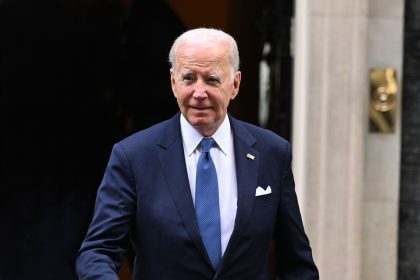Another Donald Trump swipe at Fani Willis has failed.
The Fulton County District Attorney is proceeding with election interference charges against the former president and 14 co-defendants after a motion to dismiss the case on First Amendment grounds was shot down Thursday.
Last month, Trump and his team failed to get Willis thrown off the case using an appearance of impropriety. However, they succeeded in getting special prosecutor Nathan Wade removed. Their latest attempt to derail the case came because it “violates the First Amendment’s protections of political speech and activity, freedom of association, and the right to petition Congress as applied to their alleged conduct, and further contend that the indicted charges are overbroad.”
That’s how Judge Scott McAfee interpreted the motion Trump’s lawyers filed. In response, McAfee issued a 14-page ruling that said the indictment has nothing to do with the First Amendment, which protects free speech, but that it “charges the Defendants with knowingly and willfully making false statements to public officers and knowingly and willfully filing documents containing false statements and misrepresentations within the jurisdiction of state departments and agencies.”
McAfee cited Trump’s attempts to certify “alternate” presidential electors and that the former president had knowingly made bogus claims in state proceedings and in court as part of an attempt to overturn the results of the state’s election, which Joe Biden had won.
Trump attorney Steve Sadow said he will assess his options, given that McAfee’s ruling opens the door to the defense possibly raising again a First Amendment challenge “after the establishment of a factual record” in the case.
A spokesperson for Willis declined to comment.
No trial date has been set in the case, though Willis has expressed optimism that it could start by August. The more Trump continues with his strategic delay tactics, however, the less likely it is that it will begin by then—or before the presidential election in November.
One of Trump’s co-defendants — attorney John Eastman — is facing disbarment in California, and the judge in that proceeding cited overwhelming evidence against him, including Eastman’s actions in the Georgia election interference case. Specifically, State Bar Court of California Judge Yvette Roland called for Eastman to lose his law license in California because Eastman knew that in challenging Georgia’s election results, some allegations and evidence proffered by experts were “incorrect” and submitted them anyway. Roland’s specific examples included debunked claims concerning vote counting at Atlanta’s State Farm Arena, where Ruby Freeman and her daughter Wandrea “Shaye” Moss worked. Again, the judge found that Eastman specifically represented to the court there was outcome-determinative fraud when he knew or should have known there was not — especially since the claims were backed up with doctored video footage.

Freeman and Moss, who faced vicious right-wing harassment to the point they feared for their lives, were cleared of all wrongdoing by the Georgia state election board last June. A jury awarded them $150 million for defamation. Meanwhile, Eastman’s disbarment proceeding is headed to the California Supreme Court for approval. He has been placed on inactive status while waiting for a final determination. But if it ends with Eastman losing his license, that doesn’t bode well for him or Trump.
Thursday was particularly bad for Trump, given that he also lost a bid to dismiss charges of mishandling classified documents because a federal records law protected him from prosecution.
U.S. District Court Judge Aileen M. Cannon rejected Trump’s motion, saying that the Presidential Records Act “does not provide a pre-trial basis to dismiss” either the mishandling charges or the related obstruction charges against Trump.
Federal prosecutors have asked a judge to push Donald Trump’s classified documents trial in Florida to July 8, probably after the Supreme Court rules on his claim of presidential immunity. Meanwhile, Trump’s lawyers are trying again to delay the trial until after the presidential election.











